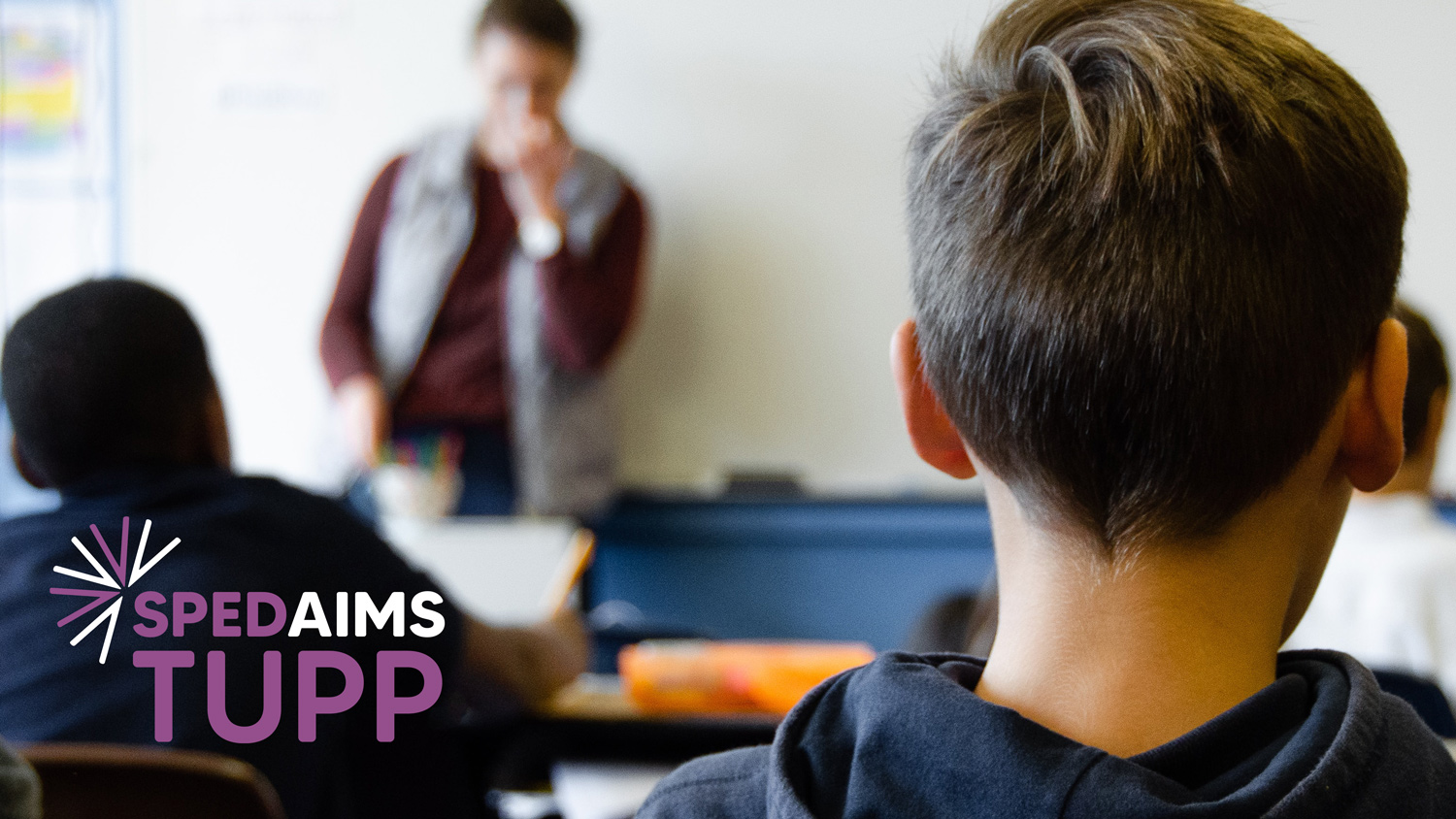The purpose of the SpedAims TUPP research project is to assess the effect of planned interventions on academic and language skills, social functioning and quality of the learning environment. The project also aims to develop national expertise in single-case methodology.

Facts about SpedAims TUPP
Investigating
- Language stimulation of children with developmental disabilities.
- Follow-up after bullying.
A collaboration
between SpedAims and schools and families in Southern Norway and Western Norway.
Finansiert
av Norges forskningsråd og alle partnerinstitusjonene i SpedAims.
We need more knowledge
In many research fields, it is difficult to carry out effect studies that require large samples, so-called randomized control studies. This is because some challenges occur relatively rarely and one encounters ethical dilemmas related to randomization and how invasive the intervention can be. Single-case methodology makes it possible to carry out high-quality effect studies, with far fewer participants, in short time intervals and with fewer ethical implications. These can also provide a basis for larger intervention studies for groups where applicable.
SpedAims TUPP consists of two studies:
- Follow-up after bullying: Far too many students are exposed to bullying in Norwegian schools. In many cases, the school manages to stop the bullying, but both the student and the whole class can still bear the mark of this for a long time, and for some students and classes the scars from the bullying are extensive. In this project, we want to study how we can follow up individual students and classes after the bullying has stopped. The schools will adopt interventions to follow up the pupil who has been bullied and the whole class. Researchers will follow the class and study how the interventions affect the students' interaction and the bullied student's experience of security and well-being.
- Language stimulation of children with developmental disabilities: We are interested in exploring the effect of a targeted intervention on the development of language skills in children with developmental disabilities in early school age. We know that many children struggle to acquire these skills, but research gives us good insight into what works best to improve this development.

SpedAims - Centre for Research on Special Needs Education and Inclusive Practice is a collaboration between special educational research environments at the University of Oslo, the University of Stavanger, the University of Bergen, the University of Agder and Nord University.
Contact persons in SpedAims TUPP

David L. Cameron
Professor of Special Needs Education at The Departement of Eduacation, University of Agder.

Kari-Anne Bottegård Næss
Professor at the Department of Special Needs Education, University of Oslo.

Johannes Finne
Associate Professor at The Learning Environment Center, University of Stavanger.


Nadia Abu-Salah
PhD Research Fellow at The Departement of Eduacation, University of Agder.

Anna Lange Moi
PhD Research Fellow The Learning Environment Center, University of Stavanger.